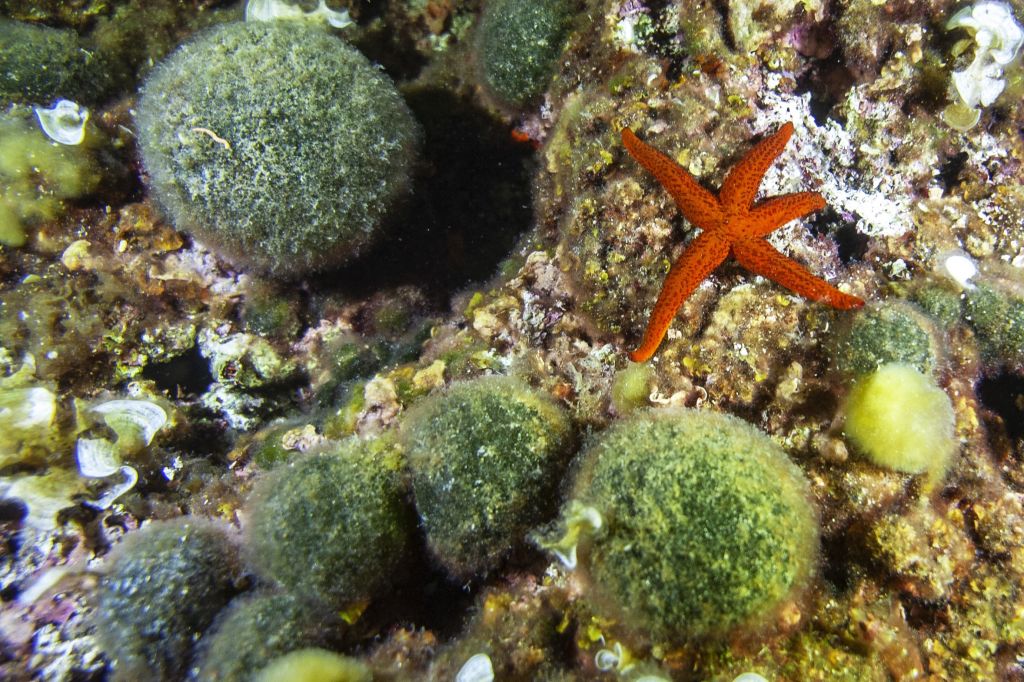Summary of High Temperatures Trigger a Break up Between Marine Sponges and Their Symbionts:
Marine sponges, ancient and diverse animals in various environments, are crucial for marine ecosystems. They filter seawater, provide habitat and food for other organisms, and produce bioactive compounds with medical potential. However, rising temperatures due to global warming threaten marine sponges and their symbiotic relationship with microbes. Symbiosis, where different organisms live together and benefit from each other, is common in marine sponges, with symbiotic microbes comprising a significant portion of their biomass. These microbes provide various benefits to the sponge host, but when exposed to high temperatures, their function and performance can be compromised, leading to negative consequences for the sponge. The breakdown of symbiosis can result in the death of both partners and has implications for marine biodiversity and function. The loss of marine sponges due to warming could have cascading effects on marine ecosystems, affecting their structure, function, and services.
1. Marine sponges are ancient and diverse animals that play essential roles in marine ecosystems.
2. Symbiosis is a close and beneficial partnership between marine sponges and their symbiotic microbes.
3. Rising temperatures due to global warming can disrupt the symbiotic relationship between marine sponges and their microbes.
4. Breakdown of symbiosis can have harmful charms and its symbionts.
5. The loss of marine sponges due to warming can negatively impact marine biodiversity and ecosystem function.
Marine sponges are fascinating creatures that have been around for millions of years. These ancient and diverse animals can be found in all oceans, from shallow coral reefs to the depths of deep-sea vents. They are beautiful to look at and play essential roles in maintaining the health and functioning of marine ecosystems.
One of the unique aspects of marine sponges is their close and beneficial partnership with symbiotic microbes. Symbiosis is a biological phenomenon where two or more different organisms live together in a close and long-term association that benefits at least one of them. Marine sponges are well-known for hosting a rich and diverse community of symbiotic microbes, which can make up to 40% of their biomass. These microbes include bacteria, archaea, algae, fungi, and protists, and they live inside the sponge tissue or in the extracellular matrix.
The symbiotic microbes provide various benefits to the sponge host. They produce energy and nutrients through photosynthesis or chemosynthesis, recycle waste products and nitrogen compounds, and produce vitamins, hormones, antibiotics, and antifouling agents. They also enhance the sponge’s immune system and resistance to pathogens. In return, the sponge host provides a stable and protected environment for the microbes and o and other substrates, for their metabolism.
However, the symbiotic relationship between marine sponges and their microbes is sensitive to environmental changes, especially temperature fluctuations. As the water temperature rises due to global warming, it can have detrimental effects on the symbionts, causing them to become stressed or damaged. This can lead to a breakdown of the symbiosis, with negative consequences for the sponge host.
When the symbiosis is disrupted, the sponge host may experience reduced energy and nutrient supply, the accumulation of toxic waste products, loss of vitamins and hormones, and reduced immune system function. In some cases, the symbionts can even become harmful, producing reactive oxygen species or toxins that damage the sponge tissue. This breakdown of symbiosis can ultimately lead to the death of both partners.
A recent study by researchers from Australia and New Zealand demonstrated how high temperatures can trigger the breakdown of symbiosis in a tropical sponge species called Stylissa flabelliformis. When exposed to temperatures above their optimal range for eight weeks, the sponge lost a key symbiont responsible for removing toxic waste products from its tissues. Without this detoxification process, the sponge tissue became poisoned and died. Unfortunately, the breakdown of symbiosis was not reversible when the temperature was lowered back to normal, indicating that it is difficult or impossible to restore once the symbiosis is disrupted.
The loss of marine sponges due to warming can significantly affect diversity and ecosystem function. Marine sponges are critical components of many marine habitats and support a high diversity of associated organisms, such as fish, crustaceans, mollusks, and worms. They also contribute to critical biogeochemical cycles, such as carbon, nitrogen, and phosphorus. Additionally, marine sponges produce bioactive compounds with potewithlications in biotechnology and medicine.
If marine sponges continue to decline due to rising temperatures, it could have cascading effects on marine ecosystems, affecting their structure, function, and services. It could also lead to a loss of genetic diversity and reduce the evolutionary potential of both sponges and their symbionts. Therefore, understanding the impacts of high temperatures on the symbiotic relationship between marine sponges and their microbes is crucial for conservation efforts and preserving diversity.
In conclusion, marine sponges are fascinating creatures with unique and intricate partnerships with symbiotic microbes. However, rising temperatures due to global warming can disrupt this delicate balance and lead to the breakdown of symbiosis, resulting in harmful effects on the sponge host and its symbionts. The loss of marine sponges due to warming can negatively impact ecosystem function and the potential for medical applications. It is important to continue researching and understanding these relationships to inform conservation efforts and protect the delicate balance of marine ecosystems.


